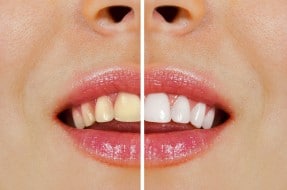Call now on0800 051 8069
Problems with Tooth Whitening
-
What constitutes appropriate tooth whitening practice and what can go wrong when it is not carried out properly.
By Ali Cloak
Many patients are keen to have tooth whitening treatments in order to enhance their smile. However, many don’t realise that tooth whitening should only be carried out by dental professionals who are registered with the General Dental Council (GDC).
WHO CAN PERFORM TOOTH WHITENING?
Tooth whitening can only be lawfully performed by a registered dentist or a dental therapist or dental hygienist working to the prescription of a dentist.
The High Court case of GDC v Jamous has confirmed that tooth whitening is considered to fall within the practice of dentistry and can therefore only be legally performed by a dentist or a therapist/hygienist working to the prescription of a dentist. Tooth whitening is not considered to be a cosmetic treatment and therefore cannot be lawfully performed by a beautician, for example.
Whilst some treatment providers say that they are insured to perform tooth whitening this does not mean that they are necessarily qualified to perform the whitening procedure itself.
To check whether someone is registered with the General Dental Council you can search for them on the GDC website. If you are unable to find your treatment provider on the register then they are not legally allowed to practice tooth whitening.
Some treatment providers attempt to circumvent the laws by handing the patient trays of tooth whitening materials for them to administer themselves. However, this would still amount to unlawful treatment and could well amount to negligent treatment in itself if self-administration is not appropriate for that particular product.
WHAT CONSTITUTES PROPER TOOTH WHITENING PRACTICE?
Guidance for the use of tooth whitening products is set out in formal Regulations [1].
Tooth whitening products containing or releasing between 0.1% and 6% hydrogen peroxide can only be sold to dental practitioners. Exposure to such products should be limited and so the dentist must ensure the products are only used as intended in terms of frequency and duration.
An appropriate dental examination is to be performed prior to any treatment taking place to ensure that there are no risk factors or concerns with that particular patient.
For each cycle of use, the first use can only be performed by a dental practitioner or under their direct supervision where an equivalent level of safety is ensured.
Concentrations exceeding 6% of hydrogen peroxide are prohibited unless wholly for the purpose of treatment or prevention of disease.
HOW CAN I ENSURE MY TOOTH WHITENING IS SAFE?
You should ensure that your treatment is being provided by a registered dentist, or a dental hygienist/therapist acting on the prescription of a dentist. Use the GDC website to check your treatment provider is registered.
Whilst some beauty salons offer teeth whitening, this is illegal if there is no dental professional present and it may well put your oral health at risk.
POTENTIAL PROBLEMS WITH TOOTH WHITENING
The lawyers at Dental Negligence Team have acted in cases where our clients have suffered injury as a result of poor tooth whitening techniques such as extreme sensitivity, damaged tooth enamel, chemical burns, uneven whitening, bleached gums, swelling and sores. These injuries should all be avoided with appropriate practice from a qualified dental professional.
If you are concerned that you may have received negligent dental treatment as a result of improper tooth whitening then please contact a member of the team, who will be happy to advise you on your particular circumstances.
[1] Cosmetic Product (Safety) Regulations 2008, as amended by the Cosmetic Product (Safety)(Amendment) Regulations 2012.







